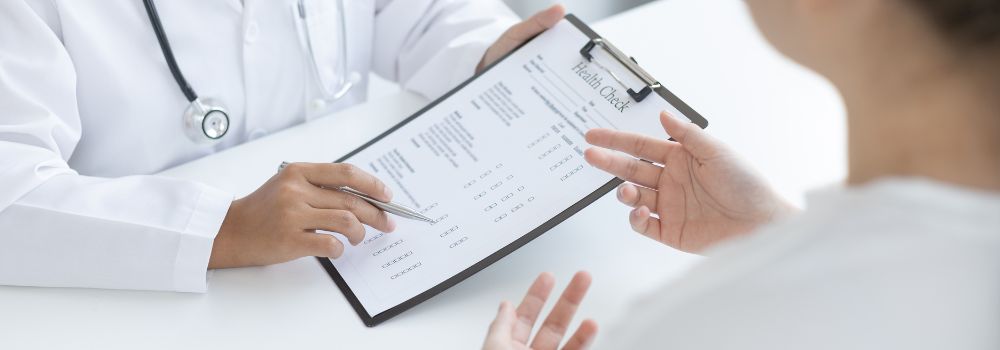Prior to having an abortion, you need to book a consultation, which is a very important appointment. This helpful guide details what you need to know about a free abortion consultation in Harlem, NY, plus what your options are, how long it takes, and much more.
 What Happens During a Free Abortion Consultation in Harlem, NY?
What Happens During a Free Abortion Consultation in Harlem, NY?
During an abortion consultation in Harlem, you will sit with a doctor, nurse, or clinic counselor to discuss abortion options. You will have an exam and lab tests, sometimes an ultrasound, which will determine whether you’re pregnant and how far into your pregnancy you are. You’ll then have a chance to ask questions. Before your visit, you should make a list of any medications you are prescribed, including dosage.
At the end of the meeting, your abortion specialist will provide you with written instructions to take home. This will guide you on what to do to prepare for the procedure and how to take care of yourself afterward
What Types of Abortions Are Available?
There are different abortions available depending on your pregnancy. This is a conversation to have with your doctor.
- A medical abortion or the abortion pill is available up to 10 weeks of pregnancy
- First-trimester abortion can involve a medical abortion or a dilation and curettage (D&C), a type of surgical abortion
- A second-trimester abortion can occur up to 24 weeks of pregnancy and involves a dilation and evacuation (D&E), another type of surgical abortion
What Happens During an Abortion?
In your consultation, you will learn what abortion options are available and what they are and how they are done.
During a medical abortion, you’ll simply take a pill during your visit. Your provider may allow you to take the second pill at home a day or two later, but you may have to come back to take it at the office.
During a surgical abortion, you can expect the following:
- Examination of the uterus
- Insertion of a speculum into the vagina
- Injection of numbing medication into or near cervix
- Stretching the opening of the cervix with a series of dilating rods
- Insertion of a thin tube through cervix into the uterus
- Usage of a small device to remove pregnancy tissue from uterus
- Checking to ensure the uterus is totally empty, occasionally a curette is used to remove any remaining tissue.
The procedure itself only takes approximately seven to ten minutes.
Once the procedure is finished, you are brought to the recovery room and your vital signs and bleeding are monitored. When you are able to sit up, you are given something to eat. Usually around half an hour later, you are able to be discharged with a responsible adult who can drive you home.
You will want to be prepared at home to take care of yourself. You will be given a number to call in case you have questions or concerns after an abortion, so keep these numbers available.
Prepare a plan to make yourself comfortable. It is not uncommon for bleeding or cramping to occur after an abortion. Be prepared for this. Have pads ready for bleeding.
You may also want a heating pad or hot water bottle available to help reduce cramping. Ibuprofen (such as Advil or Motrin) is the choice medication for cramping. Do not take aspirin, which can increase bleeding. And give your body time to rest and recover.
Does an Abortion Hurt?
That depends. It can be hard to answer that question, as pain tolerance varies greatly between people. You will likely be given medication to manage your pain. Many women experience cramping after an abortion. Often, people feel their symptoms resolve the next day.
For Abortion Services Near Harlem, Contact Metropolitan Medical Associates Today
In need of a free abortion consultation in Harlem, New York? Contact our nearby office in Englewood,NJ, to schedule your consultation today by calling at 201.429.9748.

